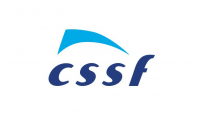The Grand Duchy of Luxembourg accounts for 36% of UCITS assets globally, indicating numerous advantages to domiciling an investment fund here. However, as the investment landscape evolves, its competitiveness is diminishing, particularly in comparison to jurisdictions such as Ireland.
In 1998, Luxembourg gained a first-mover advantage by becoming the first EU country to adopt the UCITS directive. This allowed the jurisdiction to establish a competitive moat around a friendly regulator and a uniquely skilled workforce. However, this moat is gradually eroding.
Let’s examine five areas where Ireland outcompetes Luxembourg:
1. Subscription tax
While there are exceptions, investment funds in Luxembourg typically pay between 0.01% and 0.05% of their net asset value annually to the Luxembourg government. In contrast, Ireland does not levy a subscription tax and, like Luxembourg, also exempts taxes on income, interest, capital gains, and dividends.
2. Corporation tax
Although investment funds in Luxembourg and Ireland are exempt from corporation tax, their suppliers, such as auditors, consultants, and lawyers, are not. On average, such firms pay a corporation tax of 25% in Luxembourg and 12.5% in Ireland—half the rate.
3. Income tax
The fund industry in both Luxembourg and Ireland generates thousands of highly skilled jobs, representing a significant source of tax revenue. While both countries apply similar income tax rates, salaries in Luxembourg tend to be higher, potentially making Ireland more attractive to employers.
4. Indexation
Unlike Ireland, wages in Luxembourg are automatically adjusted to changes in the cost of living. While they are adjusted upwards, they are never adjusted downwards. In 2023, Luxembourg wages were indexed three times, further increasing the cost of employment compared to Ireland.
5. US double taxation treaty
The returns generated by investment funds are heavily influenced by tax considerations, especially since US securities dominate financial markets. Ireland has a more favorable tax treaty with the US, making it a more appealing jurisdiction for investment funds dealing in US securities.
When Luxembourg emerged as a pioneer in the fund industry, it could offer services unavailable elsewhere, leading investment managers to overlook costs in the jurisdiction. However, these services are now commoditised, and costs are paramount.
Simultaneously, as fund services became commoditised, competition has driven down margins for investment fund managers. In 2024, the industry also faces competition from safer savings products linked to higher interest rates. Cost control has thus become critical to preserving profitability.
Times are changing, and business as usual is no longer sustainable in Luxembourg. A recent report suggests that the Irish fund industry will surpass Luxembourg’s by 2030. It is imperative that the Luxembourg government addresses these structural issues to restore competitiveness with Ireland.
Gregory Kennedy is a columnist for Investment Officer Luxembourg. His columns appear every other week. He also works as a business development manager at Finsoft.lu

















